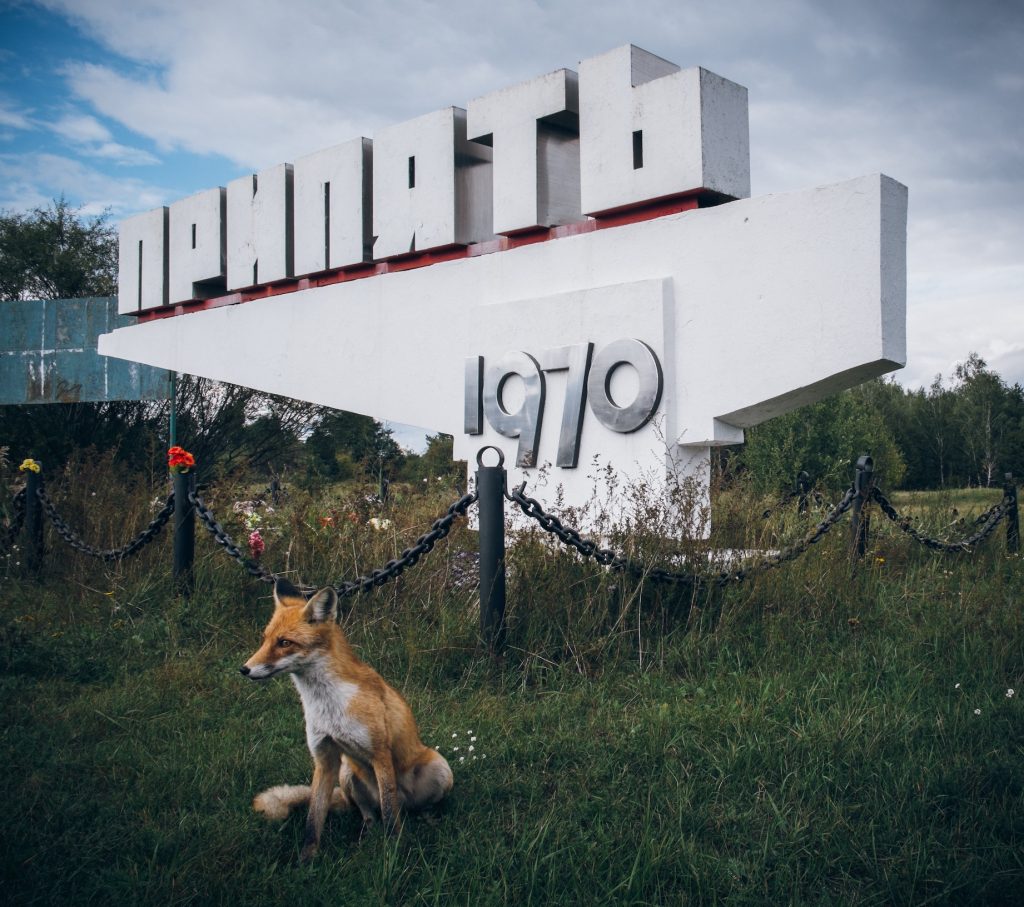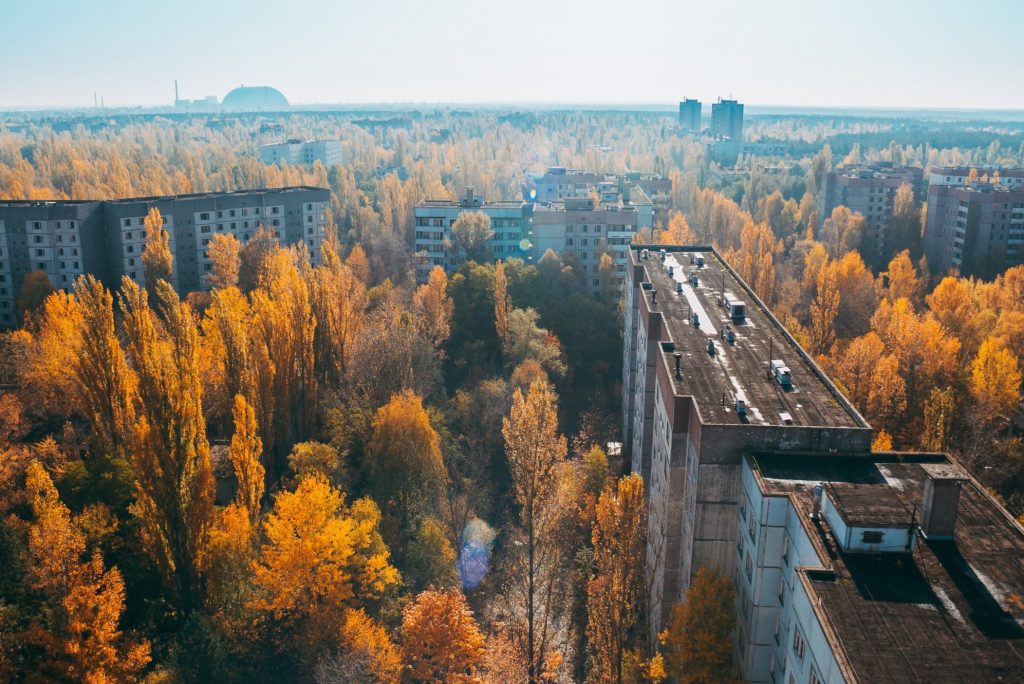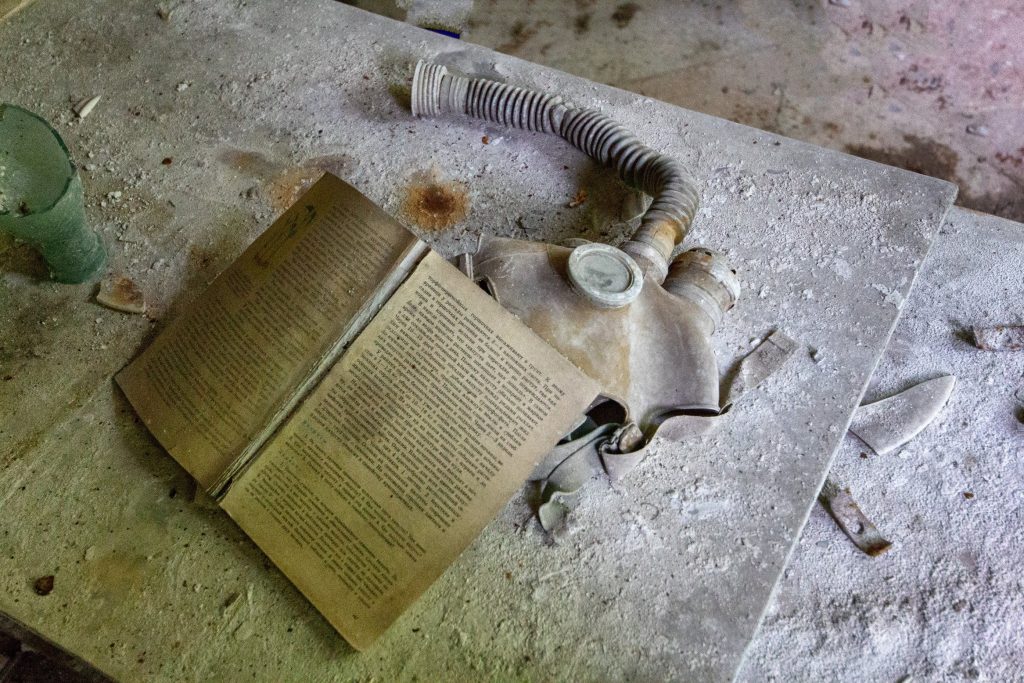Talking About Chernobyl in Russian Posted by Maria on Jun 17, 2019 in Culture, History
The Internet has been abuzz lately with discussions of the HBO Chernobyl miniseries. The show is based on the real story of an explosion at the Chernobyl Nuclear Powerplant (Черно́быльская А́томная Электроста́нция, ЧАЭС), and its release has reignited interest in the catastrophe, its causes, and how its been covered by witnesses, survivors, first responders, writers, and film-makers.
Not-So-Secret Disaster
The series is inspired by the story of the nuclear disaster at a nuclear station in the Ukrainian town of Pripyat (Russian При́пять, Ukrainian При́п’ять). The station itself was named after the town of Chernobyl (Russian Черно́быль, Ukrainian Чорно́биль), which lay a little further out. Due to operator negligence and technical faults, a nuclear reactor (я́дерный реа́ктор) exploded during a safety test in the wee hours of the morning on 26 April 1986. At first, the Soviet government tried to keep the accident (ава́рия) a secret, until a nuclear power plant in Sweden detected elevated levels of radiation.
It is estimated that tens of people died in the immediate aftermath, and several thousand died subsequently. Hundreds of thousands responders, called “liquidators” (ликвида́торы), helped to contain the damage. People living in the 30 km (17 mi) radius were evacuated and have not been allowed to come back.
Russian Connection
The show Chernobyl is a US-UK production, and many of the actors are from the UK. (By the way, there have been several other shows about the disaster.) The characters speak English, so we don’t have to suspend disbelief over the actors attempting awkward Russian. 🙂
However, there is some Russian language featured in the series, in the form of radio announcements, poetry, songs, and street signs. Of course, Ukraine’s official language is Ukrainian. However, at the time of the disaster, in 1989, Ukraine was still part of the Soviet Union. Some of the power plant workers had moved to Pripyat from other parts of the USSR, and a lot of the liquidators were sent in from the outside, so Russian would have been spoken by many among them.
Praise
The show’s been praised by many currently or formerly Russian/Soviet-based commentators for its attention to detail and level of authenticity. US-based writer Slava Malamud, who was born in Transnistria (Приднестро́вье, currently an unrecognized breakaway region of Moldova), has pointed out that the shows creators recreated details of Soviet life, both material and mental, with a great deal of accuracy. Journalish Alexey Kovalev (Алексе́й Ковалёв) was similarly impressed with the level of authenticity.
The show’s creators consulted several primary sources. Among them is the book Chernobyl Prayer/Voices from Chernobyl («Черно́быльская моли́тва») by Svetlana Alexievich (Светла́на Алексие́вич), who interviewed hundreds of eyewitnesses and survivors. Other sources included books, feature films, interviews, and documentaries on the subject.
Criticism
There has, of course, been some criticism. Pro-government media complained that the show makes Soviet leaders and people look cartoonishly incompetent, scared, and malicious. Other commentators have pointed out inaccuracies in the plot, such as with the helicopter crash (круше́ние вертолёта) and chaotic roof clean-up.
Several liquidators have chimed in on the series. Among them was engineer Aleksey Breus (Алексе́й Бре́ус), who believes that some things were portrayed stereotypically:
Коне́чно, в фи́льме есть мно́го типи́чных для За́пада шта́мпов: стака́н во́дки и КГБ на ка́ждом ша́гу.
[Of couse, the film has many clichés typical for the West, such as vodka glasses and KGB at every turn.]
However, all in all, he liked the show:
Пожа́луй, впервы́е Чернобыльская ава́рия подаётся так мо́щно – как глоба́льная катастро́фа, затро́нувшая огро́мные ма́ссы люде́й.
[It’s probably the first time that the Chernobyl disaster has been portrayed so powerfully, as a global catastrophe that affected large numbers of people.]
Have you had a chance to watch this or other films about the Chernobyl disaster or read any books about it? What were your impressions? Do you think there’s a lesson in this story that applies beyond the time and place where it happened?

Build vocabulary, practice pronunciation, and more with Transparent Language Online. Available anytime, anywhere, on any device.






